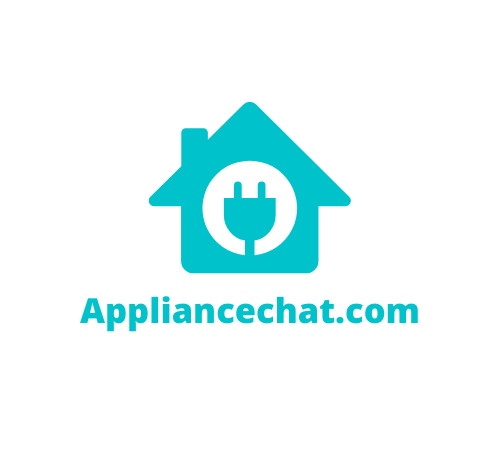Nothing like trying to cook dinner after a long day at work only to discover that your Viking gas cooktop isn’t working.
This is an all-too-common problem with gas-burning stoves, and it can be a real pain if you can’t fix it.
Fortunately, you can usually narrow down the problem by following a few simple steps
In this article, we will go over the most common problems with Viking gas stoves.
Ready! Let’s dive in
Viking Gas Stove Not Turning On
When you turn the knob on a gas stove cooktop to the “light” position, a surface burner igniter switch and a spark module activate the spark electrode.
When you start a burner and don’t hear the clicking sound of a spark jumping from the igniter electrode to the burner head, it’s because the gas stove igniter isn’t sparking.
Viking gas stove not clicking, sparking, or turning on is usually caused by a build-up of food debris, grease, water, or a faulty ignitor.
The steps listed below should be carefully followed to solve this problem.
Solution/s
Check Power Supply and Socket
- But before you do anything, check to make sure the stove is plugged into a power socket, a socket that works. The reason being most ignitors need electricity to operate.
- In the circuit breaker or fuse box in your home, check the fuse or circuit breaker for the stove. Replace a blown fuse or switch a tripped breaker to the “On” position.
Check Burner Cap
- The next step is to check that the correct burner cap is on the correct head and that the correct head is on the correct burner. Your gas stove won’t be able to ignite if the burner caps are not in the right position.
Clean and Dry the Burner
- Still not igniting the next step is to remove the grate that is covering the troubled burner. Remove the burner cap, which should come off easily.

- With a warm, soapy washcloth, clean the surrounding area. Soak the sealed burner base in vinegar or warm water and brush away any debris with a stiff brush.
- Next use a toothpick, sewing needle, or compressed air to clean any remaining debris from the burner holes. Once completely dried reinstall the burner, cover, and grill, and try lighting the burner again.
Loose Wires
- If the stove still does not light, it is possible that connections have become loose, especially during cleaning or installation. If the wires connecting the igniter to the control module are not securely connected, you will not receive the spark required to properly ignite the burner.
- First, turn off the power to the appliance by unplugging it from the wall or turning off the breaker. Remove the grate and the burner cap from the faulty burner. Check for loose connections or disconnected wires after removing the sealed burner base. Reinstall the burner base, cap, and grate after securing any loose connections and reconnecting any disconnected wires. Reconnect the stove and try lighting the burner again.
Defective Ignitor
- Finally, still not igniting you may have a defective igniter if you have cleaned the burner base of any debris and tightened any loose connections.
- You can quickly determine whether the igniter needs to be replaced by turning the control knob to the ignite position and turning out the lights in the area. If the igniter sparks yellow or orange rather than a bright bluish-white, you should probably replace it.
If this doesn’t work, there could be a kink in the gas supply line or a larger problem, in which case you should contact a professional.
Viking Gas Stove Not Working After Cleaning
When Viking gas stove does not work after cleaning, it is usually because the burner or burners are wet or dirty, the electrode is not properly seated, or the burner head and cap are not properly matched up.
The good news is this issue can be quickly resolved by following the steps below
Solution/s
- Take the burner heads and caps, shake off any excess water, and thoroughly dry them by air drying or by placing them in a warm oven for 30 minutes.
When the burner heads and caps are dry, replace them in their proper positions, plug in the unit, and try lighting the burners again. Noting a burner can take up to 10 or 12 clicks to ignite.
If it’s still not working, give it a day or two before trying again. If the problem persists, contact a qualified technician.
Viking Gas Stove Flame Goes Out
If your Viking Gas Stove flame keeps going out, it’s likely there is a blockage in the gas line.
The gas line is responsible for supplying fuel to the burner and keeping it lit. A total blockage frequently prevents the burner from lighting at all. A partial blockage, on the other hand, will allow the burner to light but not provide enough fuel to keep it lit.
It is best to call a qualified technician to come out and inspect the stove
Viking Gas Stove Flame Flickering
Viking gas stove flame flickering is usually caused by wind or a build-up of grime or dirt in the burner holes obstructing gas flow.
No need to fret, just follow the steps listed below to fix this problem.
Solution/s
Check alignment of the Burner Cap
- For your cooktop to function properly, the burner heads and caps must be properly positioned. Check that the correct cap is on the correct head and that the correct head is on the correct burner. Check that they are flat and level as well. Your cooktop may ignite slowly, unevenly, or not at all if the head or cap is even slightly off-center or tilted.
Look for airflow
- The flames on your gas cooktop may be flickering because it is exposed to some natural airflow. Check to see if your cooktop is exposed to wind or sudden changes in airflow in your kitchen.
Clean and Dry the Burner
- Clean the burner, removing any food or gunk. Use a toothpick, sewing needle, or compressed air to clean any remaining debris from the burner holes. Once completely dried reinstall the burner, cover, and grill, and try lighting the burner again.
If the problem persists, your cooktop may be experiencing a technical malfunction. Contact an authorized service agent if you suspect this is the case.
Viking Gas Stove Flame Orange
If the flame on your Viking gas stove is orange or yellow, the burner portholes are probably dirty and clogged with grease and debris. Spillovers and cooking grease can block these openings, affecting the color of the flame.
Try not to fret, just follow the steps listed below to fix this problem.
Solution/s
- First, ensure that the burner holes and ignitor are clean and free of debris. Clean these areas with an old toothbrush. If you take the burners apart to clean them, make sure you put them back together correctly. This can also have an effect on the color of the flames on your range.
- If it is still not working and you still have orange or yellow flames, or sooty flames, means you could have incomplete combustion happening, which could lead to carbon monoxide build-up in your home.
There might be an air-gas mixture problem or a problem with the gas pressure of the appliance. If you suspect this, turn off the gas supply to your appliance and leave your home.
Contact a qualified gas technician or call your utility company to request someone come out to your residence to check it out

Viking Gas Stove Flame Too Low
Clogged burner slots from grease and food particles are one of the most common causes of weak, uneven flames or your gas cooktop not getting hot enough.
When cleaning your cooktop, you can even push these things inside the slots with sponges. While you may believe that the flames will eventually burn them away, the blockages usually become more difficult to remove.
When multiple holes on the burner head become blocked, or even partially blocked, your gas cooktop will light slower and produce weaker flames. The more slots that become clogged, the worse the problem becomes.
The good news is that by following the step below, you can quickly resolve this issue.
Solution/s
Clean and Dry the Burner
- Clean the burner, removing any food or gunk. Use a toothpick, sewing needle, or compressed air to clean any remaining debris from the burner holes. Once completely dried reinstall the burner, cover, and grill, and try lighting the burner again.
If the problem persists, your cooktop may be experiencing a technical malfunction. Contact an authorized service agent if you suspect this is the case.
How Long Does Gas Stove Last?
The life expectancy of a gas stove is between 15-20 years. This, however, is dependent on how frequently it is used as well as how well it is maintained and cleaned.
Viking Gas Cooktops Any Good?
Yes, Viking gas cooktops are good. Viking attractive designs, powerful burners, and a continuous heavy-duty grates provide space for pans, skillets and other cooking pots.
So, yes, it is safe to say Viking stoves are very good.
Conclusion
Viking gas stoves are dependable cooking appliances, but they, like any other machine, can run into issues from time to time.
However, such issues are typically easily fixable.
So, make sure to keep in mind the solutions to the problems mentioned above and keep using your induction cooktop without any complications.
Related Articles
- Viking Induction Cooktop Problems: 7 Common Issues (Must Know)
- Oven Not Heating Up but Stove Works (with 5 Simple Fixes)
- Why Are Viking Stoves So Expensive? (Must Read)
References

